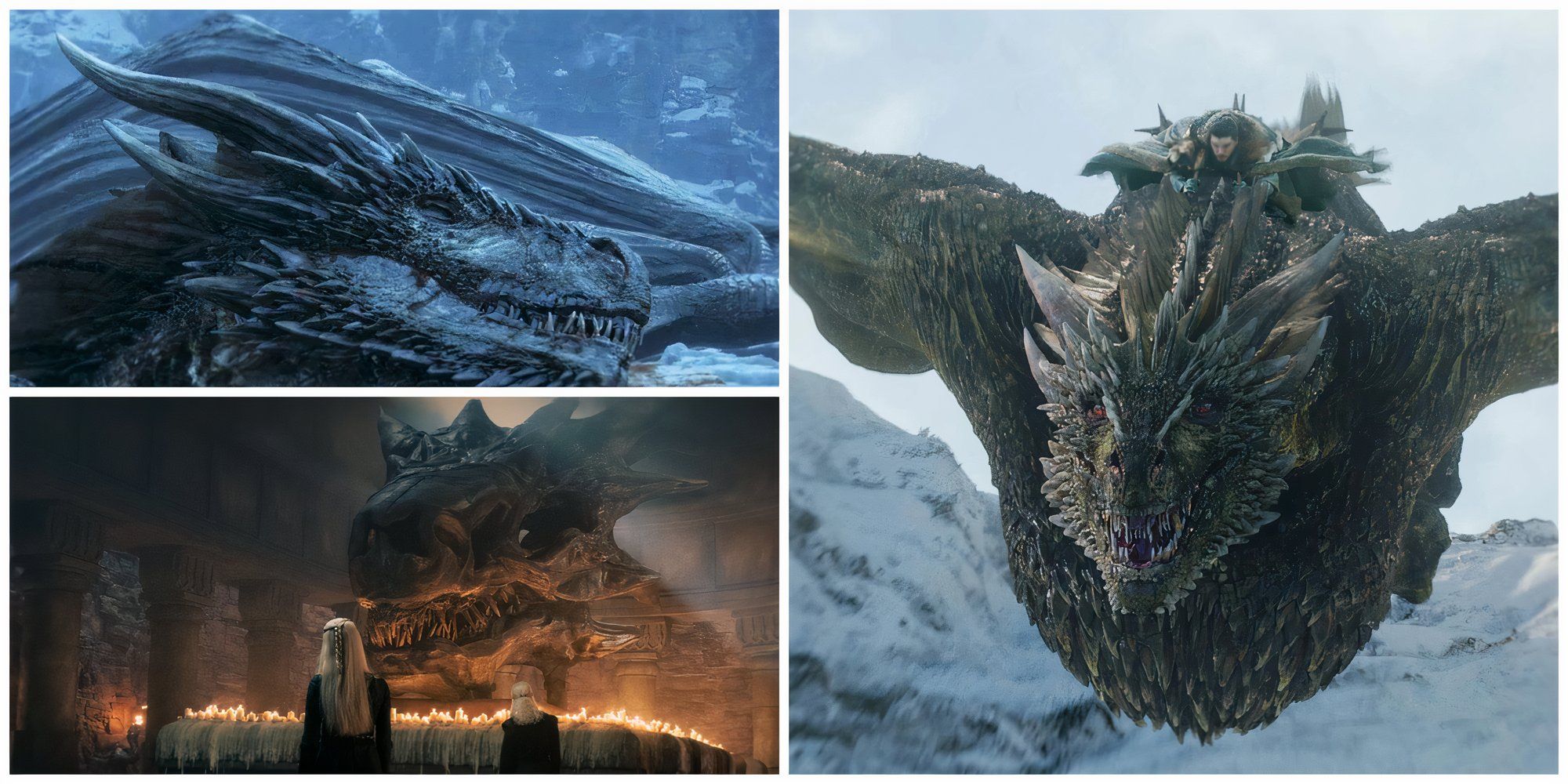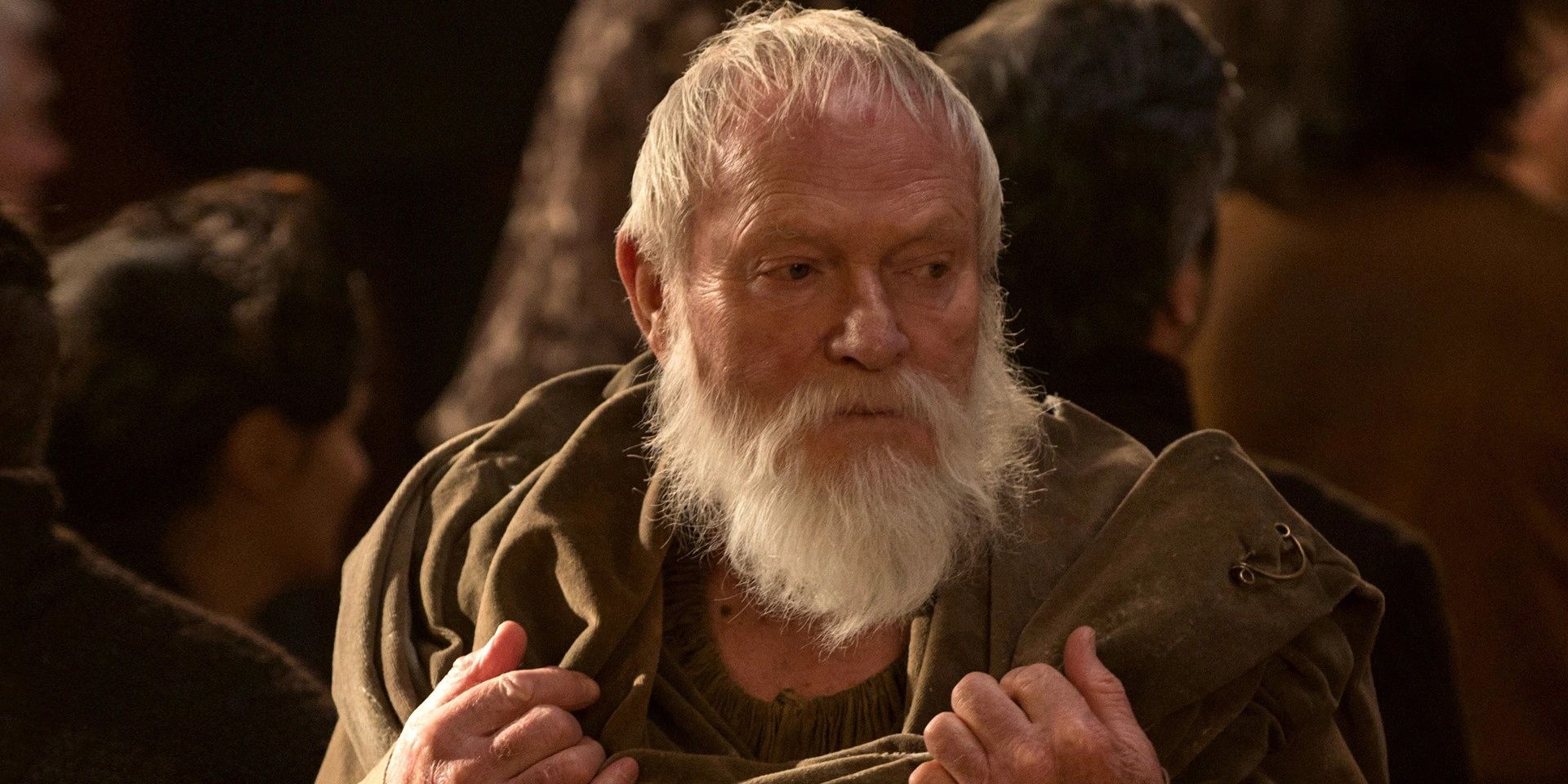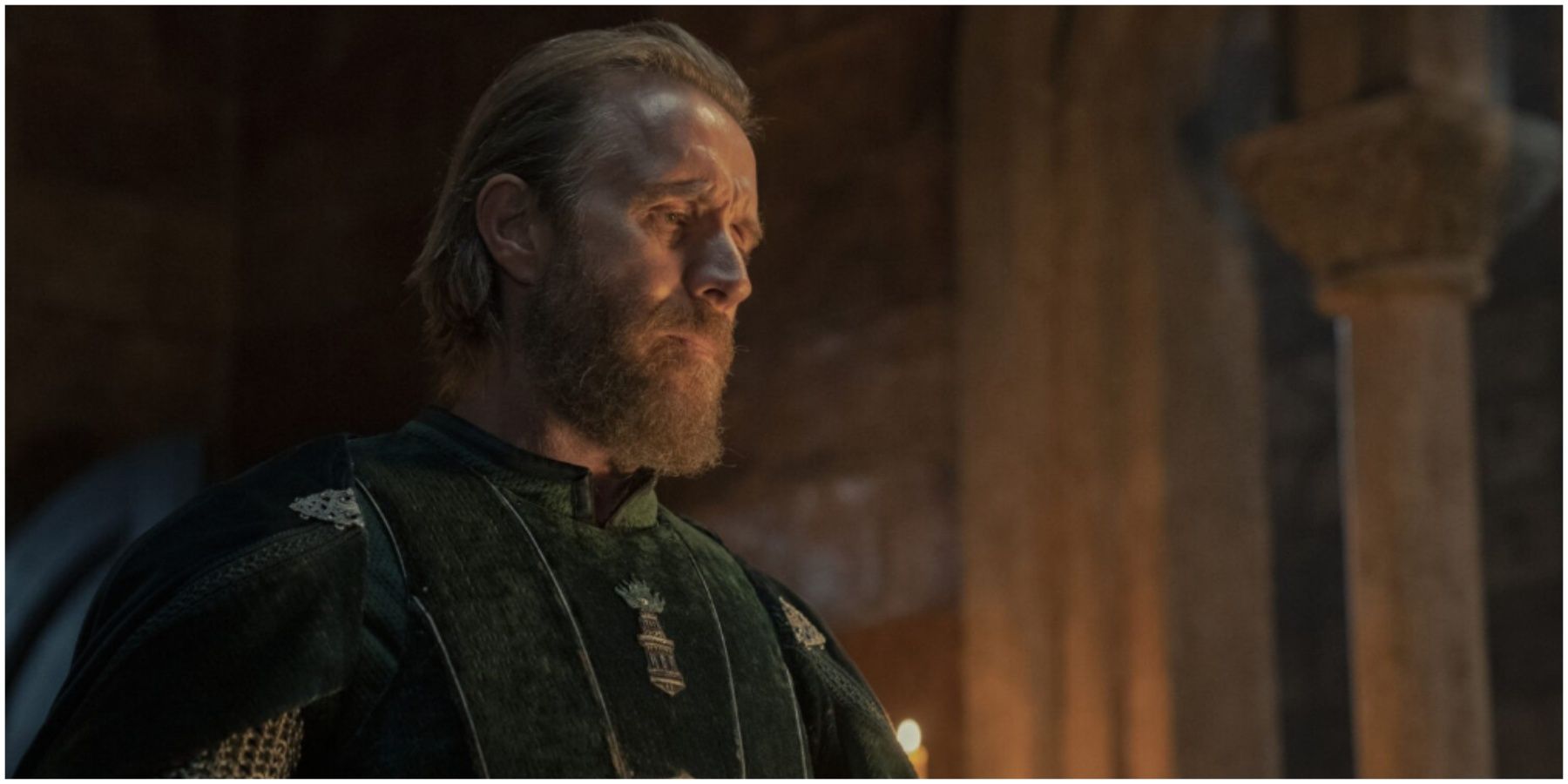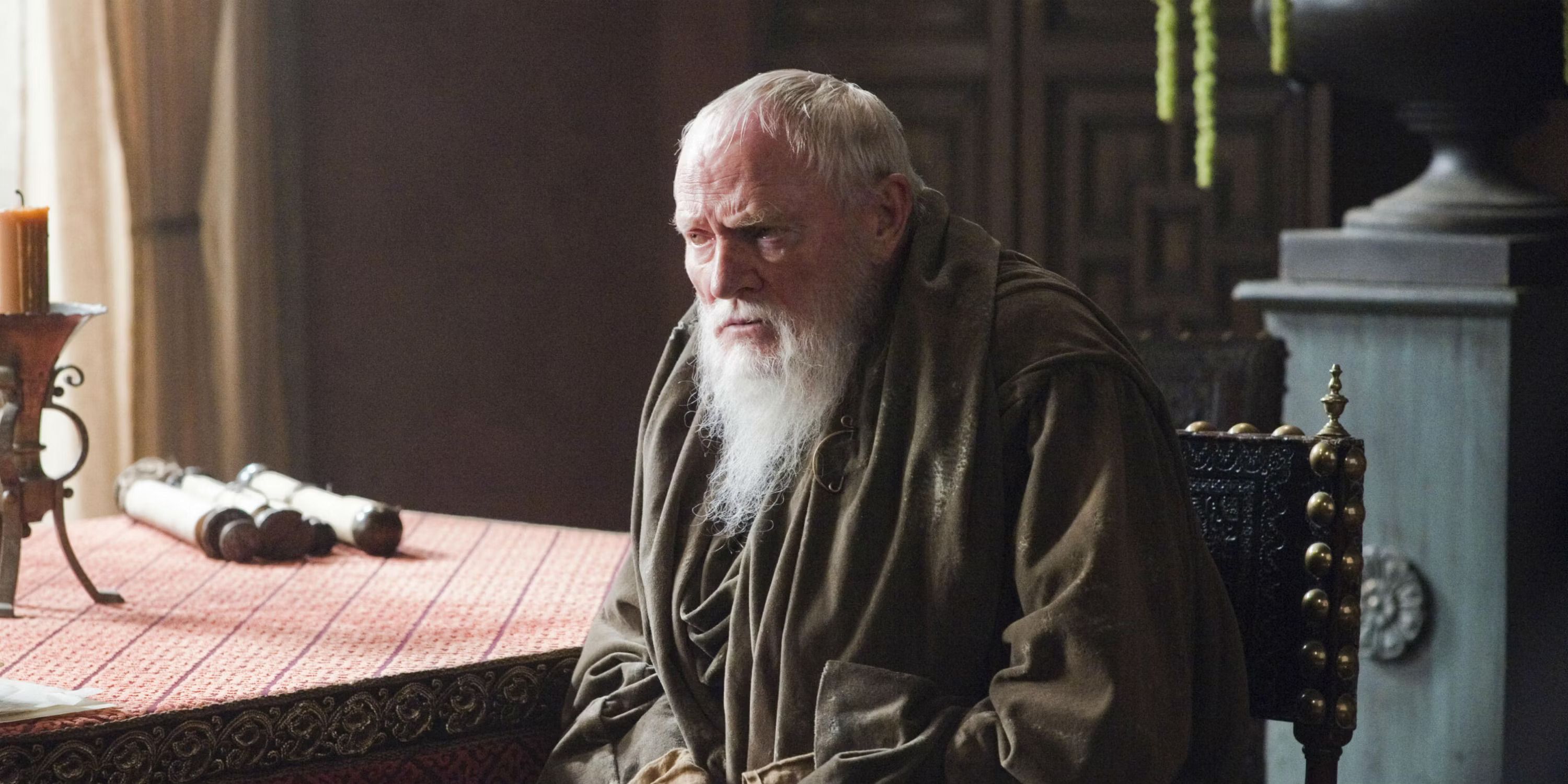Game of Thrones takes place in a fantasy world modeled after real history. Many elements of its geopolitical structure and cultural traditions come from the past. Knowledge came at a premium in the olden days. Only those with the money to afford an education learned much, and their information tended to be incorrect. Game of Thrones centralizes its in-universe knowledge in a group of chain-wearing intellectuals called the Order of Maesters.
Power is often the primary antagonist in Game of Thrones. Westeros follows several genetic dynasties, almost all of which frequently leave monsters in charge of nations. People who aren't born into nobility struggle to change their station. While some can become knights through feats of martial skill and strength, men of intelligence have a path to greatness as well.
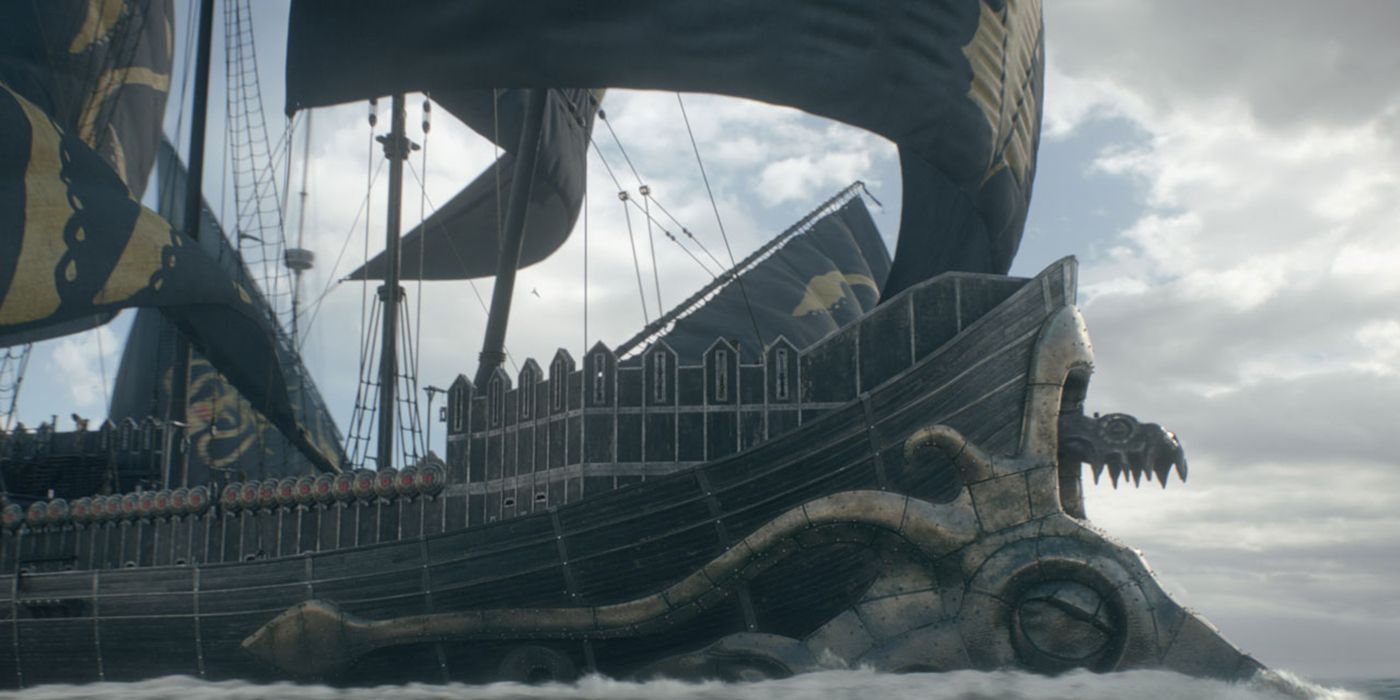
10,000 Ships Creator Reveals New Details About Cancelled Game of Thrones Spinoff
Brian Helgeland shares insights into the canceled Game of Thrones spinoff series, 10,000 Ships, shedding light on its narrative and untold potential.
How did the Maesters form?
The Order of Maesters is old and well-established in Westeros. Its origin story remains in dispute. House Hightower likely assembled the earliest precursor to the Maesters during the Age of Heroes. King Uthor of the High Tower is celebrated as the first father of House Hightower. His second son, Peremore the Twisted, was born sickly and weak. His congenital maladies left him bedridden for most of his short life, but his mind compensated for his body. Peremore was a bright, curious boy who sought to learn all he could from his home. To that end, he invited dozens of learned individuals from various disciplines to Oldtown. He spoke to scholars, singers, priests, and sorcerers from every corner of the continent. His brother Urrigon dubbed them "Peremore's pets." After Peremore died, King Urrigon set aside a sizable tract of land near the Honeywine river. He gave his brother's scholars the space that would become the Citadel, allowing them to continue their pursuits in Peremore's memory.
What do the Maesters do?
Maesters are the intellectual center of Westeros. They study and gather information from almost every discipline to further society's understanding of the natural and unnatural worlds. Any boy in Westeros may travel to the Citadel to attend lectures by educated experts. The Citadel teaches classes in almost everything, including several subjects that remain unknown to the audience. Novices learn their trades until they feel they've mastered them. At any point, a novice can present their knowledge to a teacher and become an acolyte. Maesters wear a chain comprised of metal links representing their studies. They receive a distinct link for each discipline they complete. A dedicated maester will wear a thick chain of multicolored metal. The knights of the mind handle history, medicine, biology, botany, cartography, astronomy, economics, meteorology, wartime strategy, and almost every other intellectual practice.
Most maesters either stay at the Citadel to train future applicants, continue their studies to become archmaesters, or serve at a lord's castle. The maesters in Game of Thrones tend to do the latter. The overwhelming majority of noble landowners in Westeros pay the Citadel for the service of a maester. Maesters teach the young princes and princesses, properly preparing them for a life of power. Their vows bind them to the castle rather than its owners. They provide guidance and information to whoever happens to occupy their post. Maesters give up their family names to pursue their intellectual goal, not unlike men of the Night's Watch. Luwin, for example, remained the maester of Winterfell under House Stark and its usurpers. The other important task of every maester is communication. The noble families of Westeros use ravens to carry messages across immense distances. Only maesters keep and train the intelligent birds to deliver the critical packages. Any castle without a maester would be massively disadvantaged. Luwin sells the life of a maester to Bran like this:
I can teach you history, healing, herblore. I can teach you the speech of ravens, and how to build a castle, and the way a sailor steers his ship by the stars. I can teach you to measure the days and marks the seasons, and at the Citadel in Oldtown they can teach you a thousand things more.
Who leads the Maesters?
The Grand Maester represents the Order of Maesters at King's Landing. Aegon the Conqueror created the high office after he united the Seven Kingdoms. He sought an advisor committed to the universal benefit of Westeros, granting the Grand Maester a permanent position on the small council. The Grand Maester is an elected position. Any sufficiently advanced maester can become an archmaester, and the collected body of archmaesters elects the Grand Maester via Conclave. Pycelle is the Grand Maester in Game of Thrones. He served six kings in his 40-year career.
Maesters are an underrepresented aspect of Westeros's culture. The Citadel is a monument to curiosity and scientific exploration. While they regularly suffer due to political causes, the spirit behind the Order of Maesters is pure and genuine. The smallfolk of Westeros don't have many opportunities, but if they have the brain power, they can find themselves wearing a maester's chain.
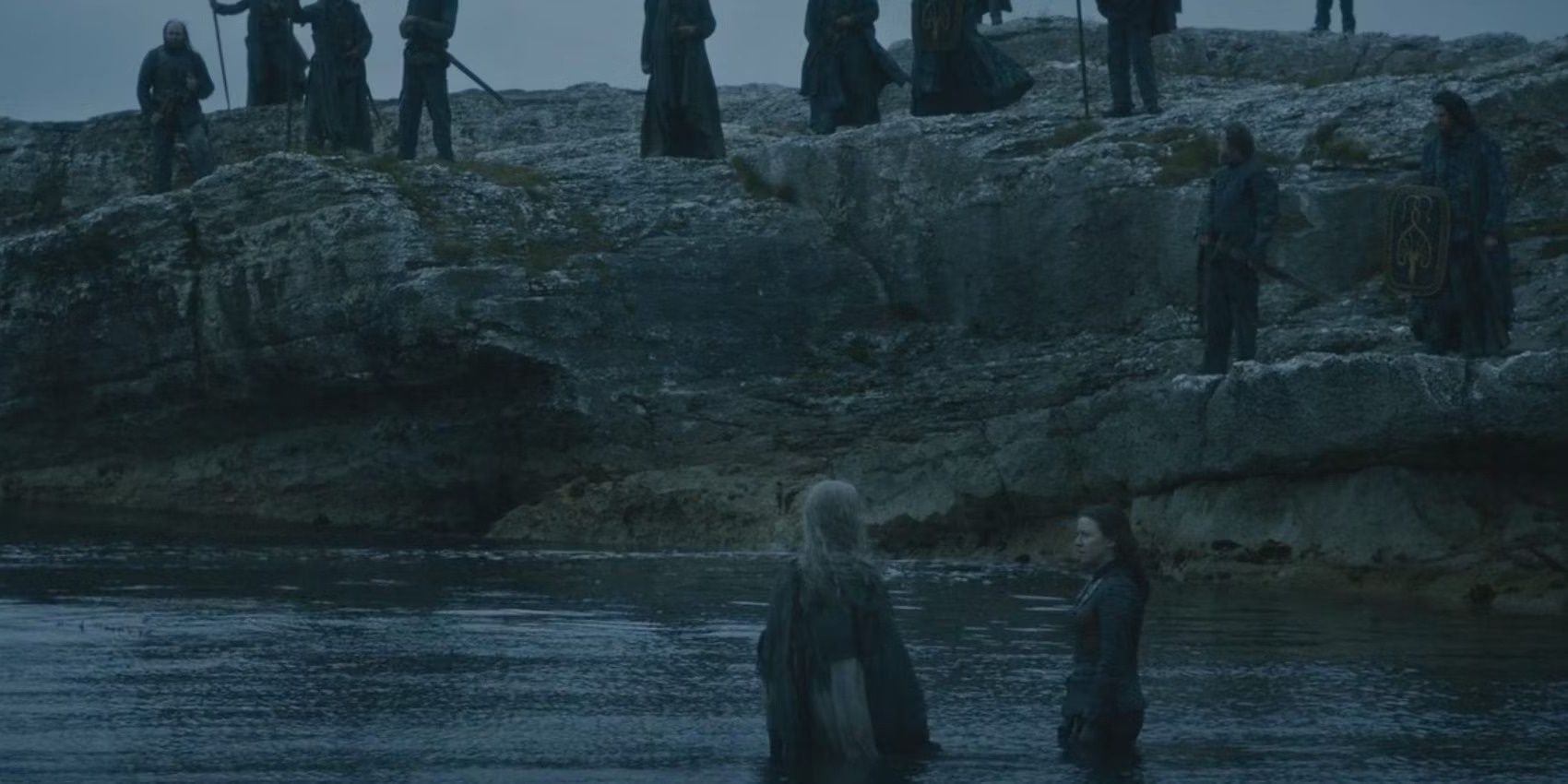
Game of Thrones: The Iron Islands, Explained
This region of Westeros is as harsh and unforgiving as the frozen North, but with stone and water in place of ice.

